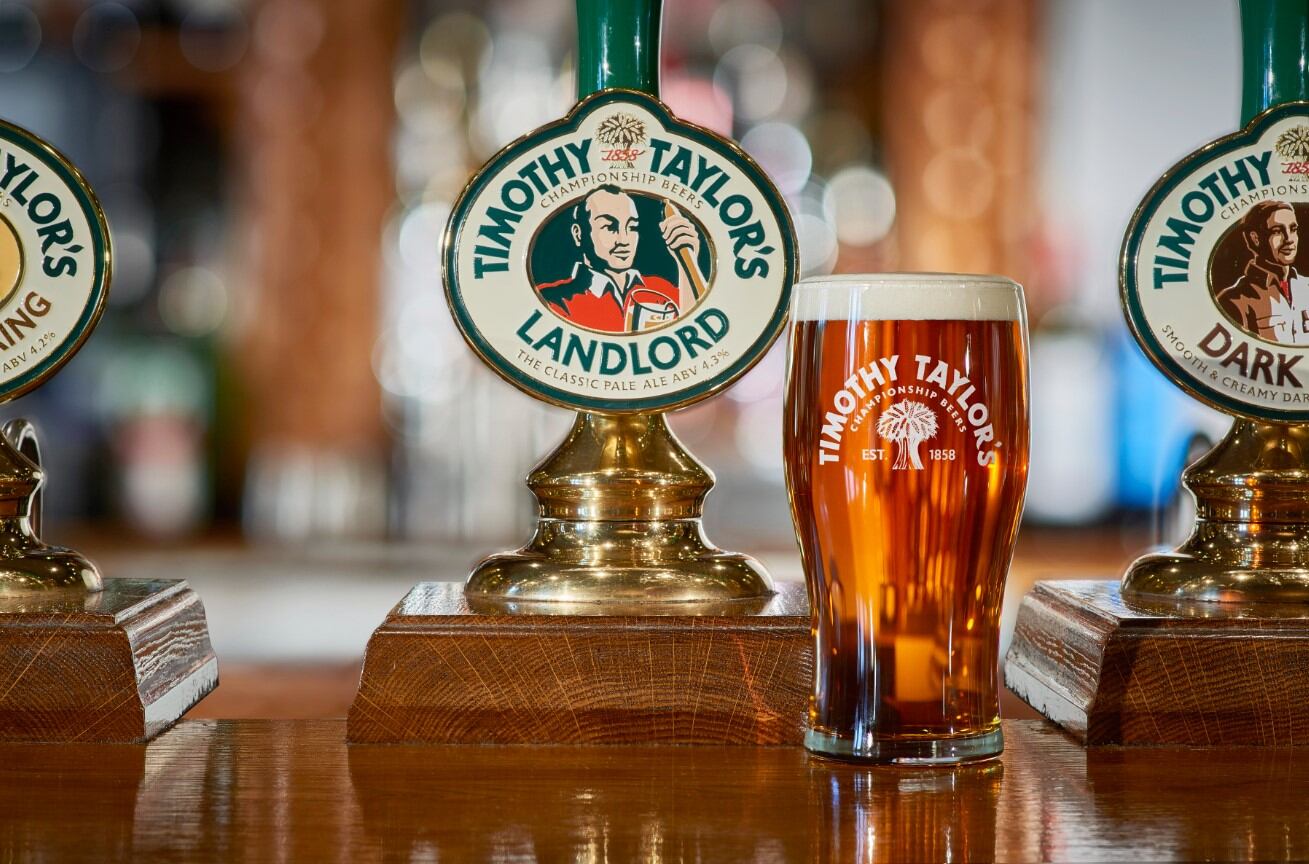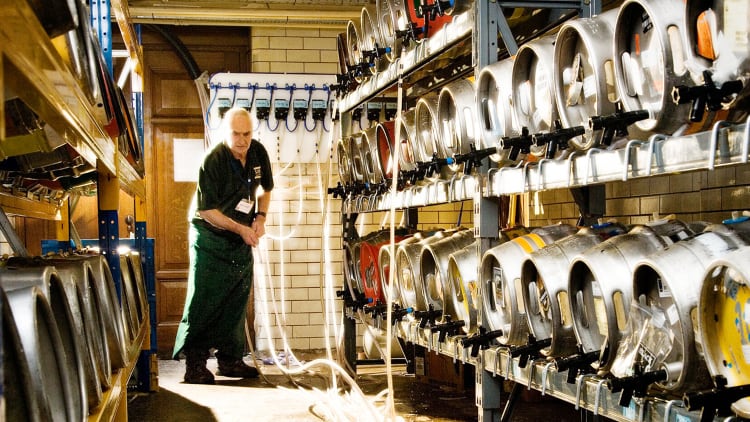According to a web survey published in January, the town of Keighley in West Yorkshire is the seventh-worst place to live in England.
This just shows you how wrong the internet is most of the time, and how the ‘wisdom of crowds’ is more akin to stupidity. A week before social media-driven panic buying demonstrates this truth in the most emphatic way, I visit Keighley. The buildings are elegantly Victorian, the hills leaning in from behind. The shops seem no better or worse than any other town these days.
At best, the ranking seems unfair. But the reason it’s utterly absurd is that Keighley is the home of Timothy Taylor’s Knowle Spring brewery. That alone surely gets it into the top 10 places to live anywhere in the country.
Timothy Taylor’s Landlord is a pale ale, 4.3% ABV, made with Styrian Goldings, Goldings and Fuggles hops. In that, it’s no different from hundreds, if not thousands, of other beers brewed in the UK today. But Landlord is also the most awarded beer in Britain, and inspires cult-like devotion among its fans, which include every beer writer I know.
If you make a similar style of beer to everyone else, using similar ingredients, how can it be so much more special? Is it special, or is it just hype?
I’ve seen other people be quizzical, other brewers jealous. “What’s so special about Landlord?” they sometimes ask. Well, I’m here to find out.
Managing Director Tim Dewey – the first MD who isn’t part of the Taylor family in the company’s 162-year history – reckons there are seven key points that give Landlord its special status. “I’m not saying no one else does some of them,” he says, “but I doubt anyone does all of them.”
I could tell you about the whole leaf hops, the Golden Promise barley or the water straight from the on-site spring. Given a higher word-count, I’d wax lyrical about the traditional open fermenters and the dual-strain yeast. I could geek out about the hopback, the care taken about ensuring a full secondary fermentation happens in the cask, or the obsession with quality, safety and cleanliness that sees every single cask inspected before it is refilled. But I increasingly feel that breaking something down into a list and itemising it misses the point.
Recipe for success
A few years ago, BrewDog gave all their recipes away for free, secure in the knowledge that no one would be able to make their beers taste quite the way they do, because of the same reasons that my wife and I can each cook the same recipe using ingredients bought from the same shop in the same pan on the same cooker, and our resulting dishes taste different. There’s an accretion of tiny details that in themselves seem unimportant, but added together create something huge.
I’m thinking of this as Tim leads me up and down steep, narrow staircases, past bits of machinery that haven’t been used for years but are kept for back-up, through low-ceilinged rooms that were built for one purpose then adapted to another.
There’s an attitude here that you can see in the pride of the brewer who explains the detail of the new cask washer to me, the explanation of the logistics of lorry loading, the insistence on safety shoes, lab coat and high viz, which means I can see bits of the tour I wouldn’t be allowed to in my civvies. The words we might use to describe this attitude, this accretion of detail, have without exception been debased by marketers, consultants and strategists who think that merely saying them will make them true.
The quality of Landlord is down to all the above, and yet to spell it out misses the point. It’s about attitude, custom, tradition, expectation and love. Forget the context, forget you’ve heard the term before, and the best word to sum it up would be ‘craft’. Maybe why that’s why beer writer Michael Jackson referred to Timothy Taylor’s as ‘a craft brewery down to the last detail’, all the way back in 1982 – the first ever recorded use of the term.
So I’m sorry I can’t define the uniqueness of Timothy Taylor more precisely. But if it’s the birthplace of the term ‘craft beer’, what do you expect?




